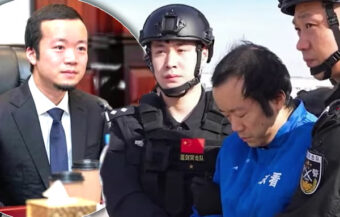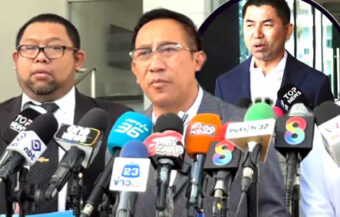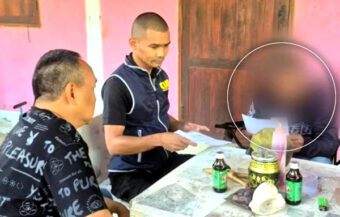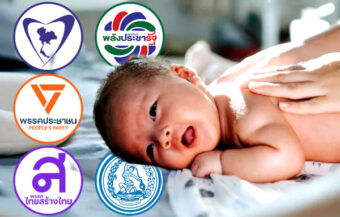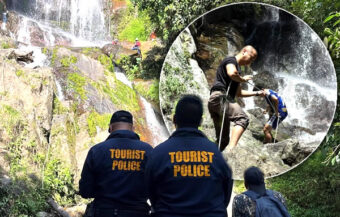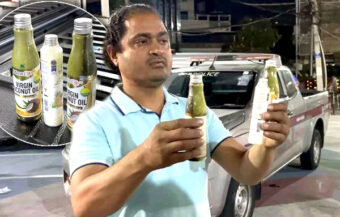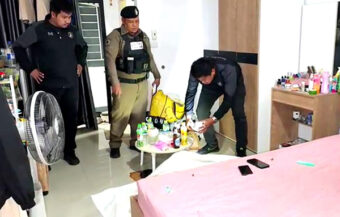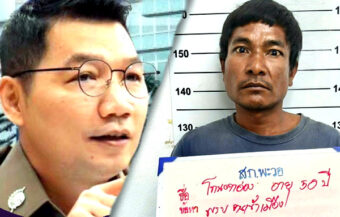Belarusian model Vera Kravchova, 26, vanished after a Bangkok job offer. She was trafficked to a Myanmar scam camp, enslaved, and reportedly killed. Her family was told she was cremated after a ransom demand. Claims of organ harvesting spark global outrage.
The depravity of scam centres in Myanmar and Cambodia is exposed by the case of a 26-year-old Belarussian woman. She disappeared in Bangkok on September 12 and was reportedly held as a slave by militia-linked captors in Burma. Her family says she is dead and cremated, with disturbing reports suggesting her organs were harvested. The Belarusian Foreign Minister has warned against sensationalised claims, yet the case mirrors a previously denied 2022 incident involving a Thai woman captured in Cambodia.

The Belarusian ambassador is investigating disturbing reports suggesting Vera Kravchova, a 26-year-old woman, was murdered in Myanmar. Reports indicate her family first received an ultimatum. Later, they received a demand for US$500,000 to repatriate her body. Reports claim her organs were harvested before cremation.
Kravchova had left Bangkok for Yangon on September 20. Previously, she disappeared on September 12 after a supposed job interview in Bangkok. According to her family, she believed she had secured legitimate modelling work.
Instead, she was abducted and taken to a northern Myanmar criminal camp. The camp is reportedly controlled by militias with links to organised crime networks.
Abduction of Vera Kravchova shows how militia-linked camps in northern Myanmar abuse foreign workers
Her passport and mobile phone were confiscated upon arrival. Consequently, she was forced to work in a cyber scam camp. Victims in these camps are made to conduct online fraud, including romance scams. These operations target victims internationally. Reports suggest that those who fail to meet targets lose all contact with family.
According to international media, Kravchova’s family was informed weeks later that her body could only be released for half a million dollars. When they did not pay, they were told she had been cremated. Russian outlet SHOT claimed her organs were sold before cremation.
Notably, SHOT is a media channel based in Russia that operates from a Telegram channel.
The Belarusian Ministry of Foreign Affairs, however, has confirmed her departure from Bangkok and that an investigation is ongoing. Ambassador Vladimir Borovikov said the embassy is cooperating with Thai and Myanmar officials. He also urged citizens to exercise extreme caution when accepting foreign job offers.
Family and officials confirm ongoing investigations while warning against sensationalised media reports
This case is similar to others in the region. Dashinima Ochirnimayeva, a 24-year-old Russian model, was trafficked to Myanmar. Fortunately, Russian authorities rescued her. She reported being forced to work under threats and live in captivity. These cases reflect a growing trafficking problem in Southeast Asia.
A 2023 UN report estimates 120,000 trafficking victims remain detained in Myanmar. Many are forced into scam operations or cyber fraud. Human rights organisations warn that Myanmar, Cambodia, and Laos are major trafficking hubs. Corruption and local complicity allow criminal networks to operate freely.
Longstanding reports link scam centres to organ harvesting. Thai Deputy National Police Chief Surachate Hakparn led investigations into these Cambodian scam centre operations in 2022. Previously, he accused senior Cambodian officers of obstructing efforts to free detained Thai nationals. However, Cambodian authorities denied wrongdoing. They later claimed reports of organ harvesting were fabrications.
Despite denials, the scale of cyber scam operations in the region remains significant. General Surachate, a former anti-corruption campaigner in the force, was later dismissed by the Royal Thai Police just last year.
Investigations reveal extensive scam centre operations and persistent organ harvesting allegations in Cambodia
Just weeks from being tipped as the next police chief, he was linked to an online gambling network. He was subsequently the subject of an arrest warrant from a Bangkok court. On that basis, he was forced out by Royal Thai Police disciplinary panels. Nonetheless, he continues to deny wrongdoing. He claimed there was a plot to remove him because of his anti-corruption work.
In the meantime, the Royal Thai Police continues to crack down on attempts to abduct Thai nationals into Cambodia. A police operation in Sa Kaeo Province last week saved 11 people, including seven men and four women.
Last week, the Federal Bureau of Investigation (FBI) and UK regulators, targeted a vast Cambodian conglomerate as a front for a scam centre empire. The Prince Group conglomerate in Cambodia also includes a bank.
Authorities neutralised approximately ฿500 billion in cryptocurrency and seized property in London. The conglomerate is reportedly led by Chinese-Cambodian national Chen Zhi. He advises both Hun Sen and Prime Minister Hun Manet. Cambodian authorities deny proof of wrongdoing, but investigations continue.
Thai and international authorities target major Cambodian conglomerates linked to scams and crime
Kravchova’s route highlights how traffickers operate across countries. She travelled from Minsk to St. Petersburg, then through Vietnam, China and Indonesia. Upon arriving in Bangkok, she disappeared. Her family lost all contact after September 12. They later received ransom demands linked to her body.
Reports describe her duties in the camp as forced servitude. She had to maintain her appearance, serve her captors, and participate in online scams.
Young women were recruited for romance scams, while others conducted text-based fraud. Organised crime groups there reportedly profit from both scams and organ trafficking.
Belarusian authorities nevertheless warn against unverified reports circulating online. Ambassador Borovikov said many claims are unverified and potentially misleading.
He criticised the spread of false information for sensationalism. Russian site Izvestia also reported his statements. Despite this, evidence of trafficking and abuse is consistent in multiple cases.
Experts warn that cross-border trafficking networks exploit women through scams and forced labour
Experts say criminal networks exploit border loopholes and local complicity. They combine fraud, forced labour, and organ trafficking into a profitable system. Authorities face challenges due to corruption and weak law enforcement. International cooperation is crucial for combating these networks.
Human rights advocates stress the vulnerability of young women seeking work abroad. Job offers in modelling or entertainment are often used to lure victims. Once isolated, victims are forced into scams or other illegal work. Criminal groups operate sophisticated recruitment and control methods.
Lately, foreign governments, notably the United States and China, have increased monitoring of suspicious camps. Thai police are therefore working closely with these efforts, including the latest case from Belarus, to track victims.
Families demand accountability and transparency regarding the circumstances of deaths like Kravchova’s. Diplomatic channels, NGOs and law enforcement agencies continue to investigate.
Authorities emphasise international cooperation and transparency to protect trafficking victims
The case also highlights the illicit organ trade. Victims of trafficking may be exploited for organs. While some reports remain unverified, multiple sources suggest this is a recurring issue. However, because of its abhorrent nature, the crime remains shrouded in dark secrecy.
Breakthrough reports, however, suggest it is happening with organs being supplied to medical facilities in India and China. Authorities and human rights groups warn that organised crime targets vulnerable young women in high-risk industries.
Reports note that recruitment often begins online or through fake job agencies. Criminal networks promise high-paying modelling or entertainment work abroad.
Upon arrival, victims are trapped and forced into fraud or labour. Communication with families is often severed immediately. Failure to meet targets can lead to threats, abuse, or even death.
Myanmar’s criminal camps are reported to have strict control measures. Victims are confined and monitored constantly. Women are trained to deceive and manipulate online targets. Other prisoners are forced into text-based scams. The combination of psychological abuse and physical restriction makes escape nearly impossible.
International agencies emphasise prevention. Education about risks and verification of job offers is essential. Governments, NGOs, and law enforcement encourage reporting suspicious recruiters. Victims who escape require protection, safe repatriation and legal support.
Strict camp control and trafficking methods highlight the urgent need for prevention and victim protection
The emerging case of Vera Kravchova has shocked Southeast Asia and the international community. It demonstrates the dangers of human trafficking, forced labour, and organ harvesting. Authorities must act decisively to dismantle criminal networks. Families continue to demand justice and answers regarding the fate of loved ones.
Reports show that similar cases are ongoing in the region. Myanmar, Cambodia, and Laos remain trafficking hotspots. Criminal operations exploit weak borders and local corruption.
They thrive in areas where they are tacitly supported by the government or where conflict has left the rule of law in the hands of local warlords. This is presently true for much of Myanmar, Cambodia, and pockets in Laos.
Certainly, the scam centre industry is presently dominated by Chinese mafia figures, although there are reported investments also from Hong Kong and Malaysia. International coordination and cross-border investigations remain essential. The global community must remain vigilant.
Kravchova case shows scale of organised crime and human trafficking across Myanmar, Cambodia and Laos
Kravchova’s story is a stark warning. Job offers abroad, even in high-profile industries like modelling, may hide severe risks. Young women must verify opportunities thoroughly. Governments and international bodies are urged to strengthen anti-trafficking enforcement. Rescue operations and victim support remain critical.
Cambodian scam, centre bosses target young Thai nationals seeking better pay due to the poor economy
Cyber police and Money Laundering agency seek UK and US co-operation targeting Cambodian networks
Thai and Cambodian police reveal that young woman’s ‘organ harvesting’ claims were a lie
Thai woman’s claims that she was targeted for organ harvesting being probed in Cambodia by police
The spread of organised cyber scam camps and human trafficking shows a persistent threat. Reports of organ harvesting add urgency to law enforcement action. Diplomatic engagement, investigative journalism, and NGO advocacy are all necessary tools. At the same time, vigilance remains vital to protect vulnerable individuals abroad.
Undeniably, with the developing story from Cambodia, where official United Nations reports issued just this year suggest that 60% of GDP is generated by scam operations, the issue is rising on the world’s agenda.
This is substantiated by last week’s moves by law enforcement in the United States and the United Kingdom. Undoubtedly, a major shake-up is overdue to address what is an outrage to humanity at all levels. The situation cannot be allowed to persist.
Join the Thai News forum, follow Thai Examiner on Facebook here
Receive all our stories as they come out on Telegram here
Follow Thai Examiner here
Further reading:
Cambodian scam, centre bosses target young Thai nationals seeking better pay due to the poor economy
United States, South Korea and United Kingdom act against Cambodian scam industry with Thai tie-ins
Ben Smith affair & allegations of links to Cambodian scam centres continues to rage in parliament
Defiant Rangsiman Rome warns he’s not just fighting a defamation case but for the future of Thailand
Ben Smith money fixer to the elite in Thailand lines up ฿100M defamation case against Rangsiman Rome
Leader of deadly scam gang in Cambodia and henchmen still at large following 4 more arrests





